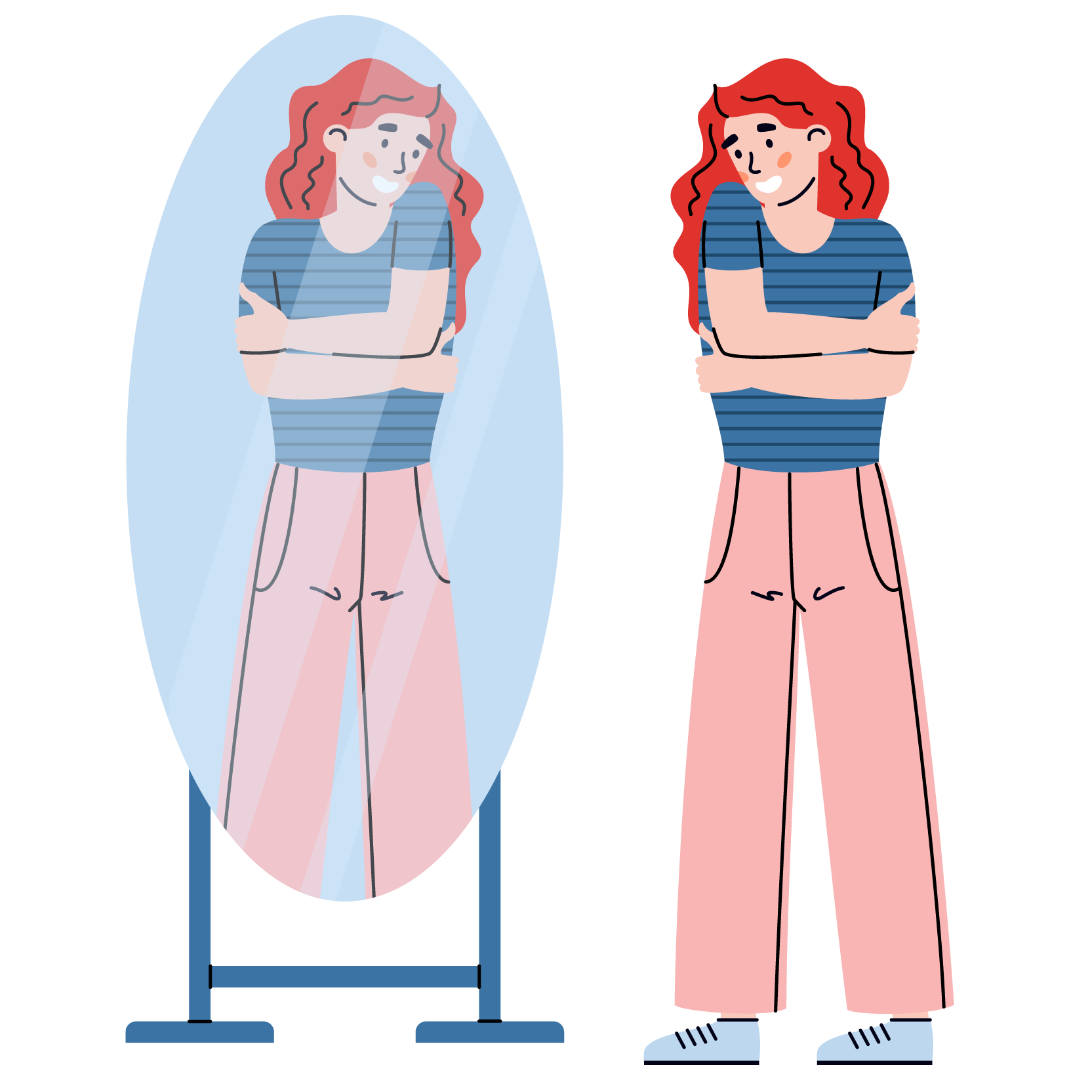Shifting the Body Conversation
It’s like clockwork. The New Year ushers in louder conversations about self-improvement, the latest body and health trends, and the “right” and “wrong” ways to dress, eat, look, or the many other ways we body shame ourselves and others. You’ve seen the ads on your devices and social media feeds. You’ve heard it creep into conversations with family after your second holiday treat: negative body talk.
Youth are constantly bombarded with messages telling them what bodies are “good” or “bad” and all the ways we can “fix” them by the health and beauty industries that profit from our desire to fit into what society deems right. It’s easy to slide into negative self-talk when we glimpse our reflection in a window or during heavy chats about the latest food trend during lunch.
All of the talk and opinions about body standards impact the mental and physical health of girls.
Studies have shown that more than 63% of teen girls and 28% of teen boys report trying to lose weight. And a cohort study found that girls who dieted moderately were five times more likely to develop an eating disorder. At the same time, those who practiced extreme restriction were 18 times more likely to develop an eating disorder than those who did not diet.
Eating disorders result in the highest fatality rate of any mental illness and disproportionally affect girls and women.
Let that sink in.
Whether they’re large ad campaigns by the latest weight-loss treatments or microaggressions we share with the teens in our lives, messages matter.
Microaggressions about body image, even when well-intentioned, can hurt self-esteem and reinforce negative perceptions.
Here are some common examples of body-related microaggressions, and suggested ways to reframe your words into supportive ways to remind youth that they’re bodies are great just like they are.
"You’ve lost so much weight! You look so much better now!"
Reframe: "You look healthy and happy! How are you feeling?""Are you sure you want to eat that? It’s a lot of calories."
Reframe: "Enjoy your food! It's important to nourish your body in ways that feel right for you.""You look great for your size."
Reframe: "You look great, period.""I wish I could eat like you without gaining weight."
Reframe: "Everyone's body is different, and what’s right for you might not be right for someone else.""You should be careful, you’re getting a little too skinny/fat."
Reframe: "I hope you’re taking care of yourself and doing what feels best for you.""Why are you wearing that? It doesn’t look good on your body type."
Reframe: "Wear what makes you feel confident and comfortable!""You’ll be happier if you lose a few pounds."
Reframe: "Your happiness comes from inside, and I hope you're doing things that make you feel good."
Small changes in language - focusing on health, self-care, and individuality - can empower youth to value themselves for who they are, not how they look.


